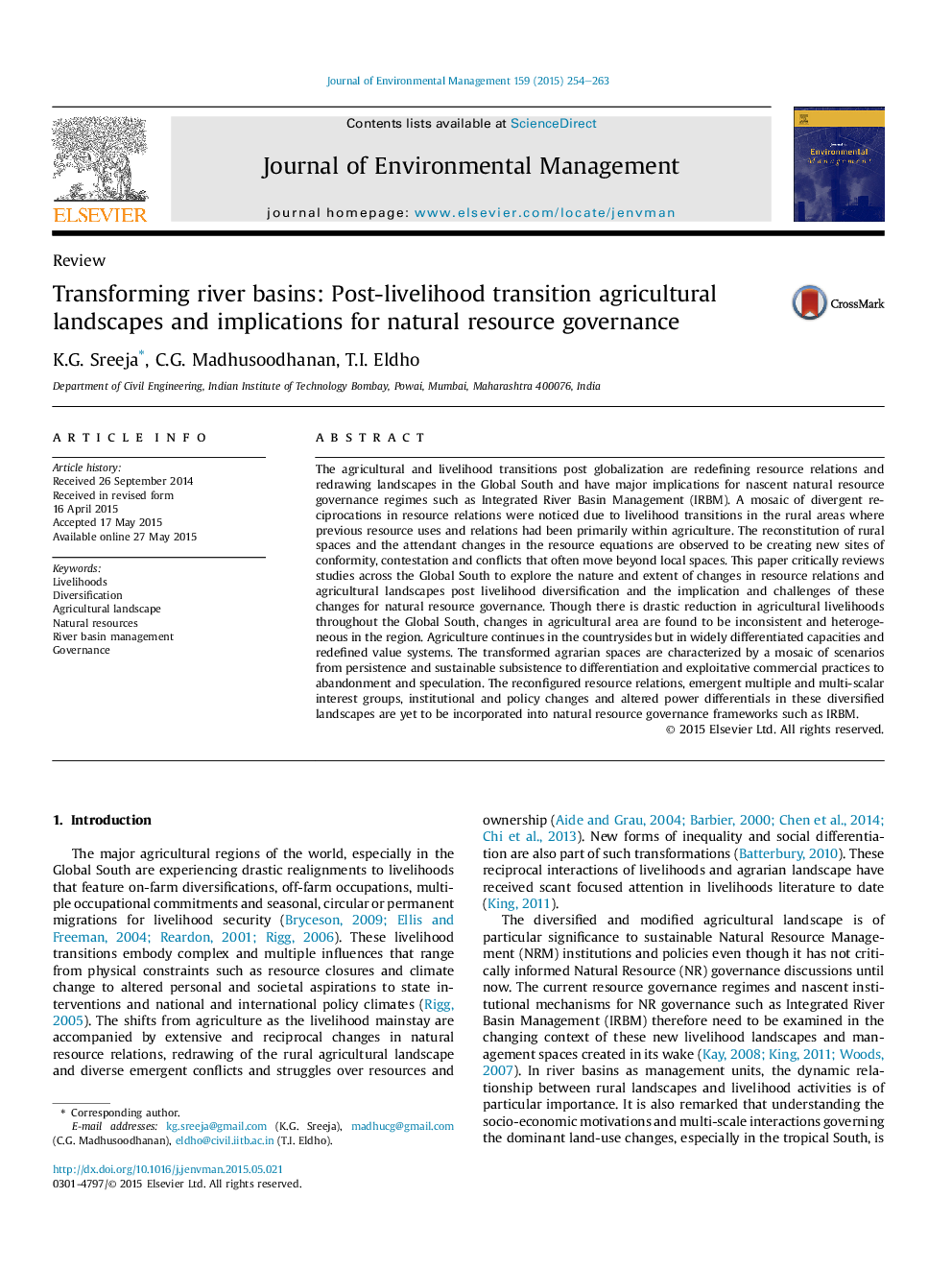| Article ID | Journal | Published Year | Pages | File Type |
|---|---|---|---|---|
| 7482025 | Journal of Environmental Management | 2015 | 10 Pages |
Abstract
The agricultural and livelihood transitions post globalization are redefining resource relations and redrawing landscapes in the Global South and have major implications for nascent natural resource governance regimes such as Integrated River Basin Management (IRBM). A mosaic of divergent reciprocations in resource relations were noticed due to livelihood transitions in the rural areas where previous resource uses and relations had been primarily within agriculture. The reconstitution of rural spaces and the attendant changes in the resource equations are observed to be creating new sites of conformity, contestation and conflicts that often move beyond local spaces. This paper critically reviews studies across the Global South to explore the nature and extent of changes in resource relations and agricultural landscapes post livelihood diversification and the implication and challenges of these changes for natural resource governance. Though there is drastic reduction in agricultural livelihoods throughout the Global South, changes in agricultural area are found to be inconsistent and heterogeneous in the region. Agriculture continues in the countrysides but in widely differentiated capacities and redefined value systems. The transformed agrarian spaces are characterized by a mosaic of scenarios from persistence and sustainable subsistence to differentiation and exploitative commercial practices to abandonment and speculation. The reconfigured resource relations, emergent multiple and multi-scalar interest groups, institutional and policy changes and altered power differentials in these diversified landscapes are yet to be incorporated into natural resource governance frameworks such as IRBM.
Keywords
Related Topics
Physical Sciences and Engineering
Energy
Renewable Energy, Sustainability and the Environment
Authors
K.G. Sreeja, C.G. Madhusoodhanan, T.I. Eldho,
